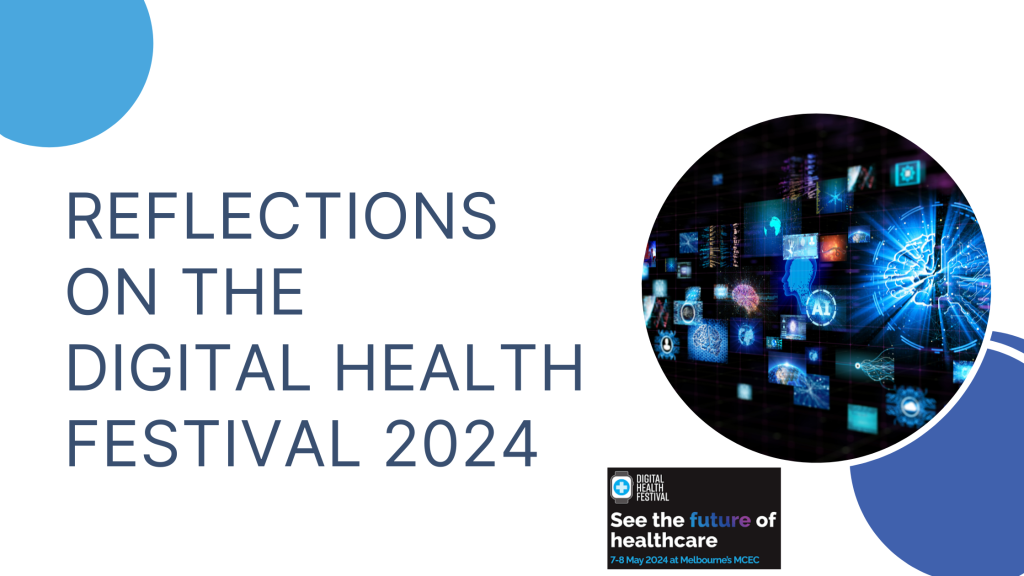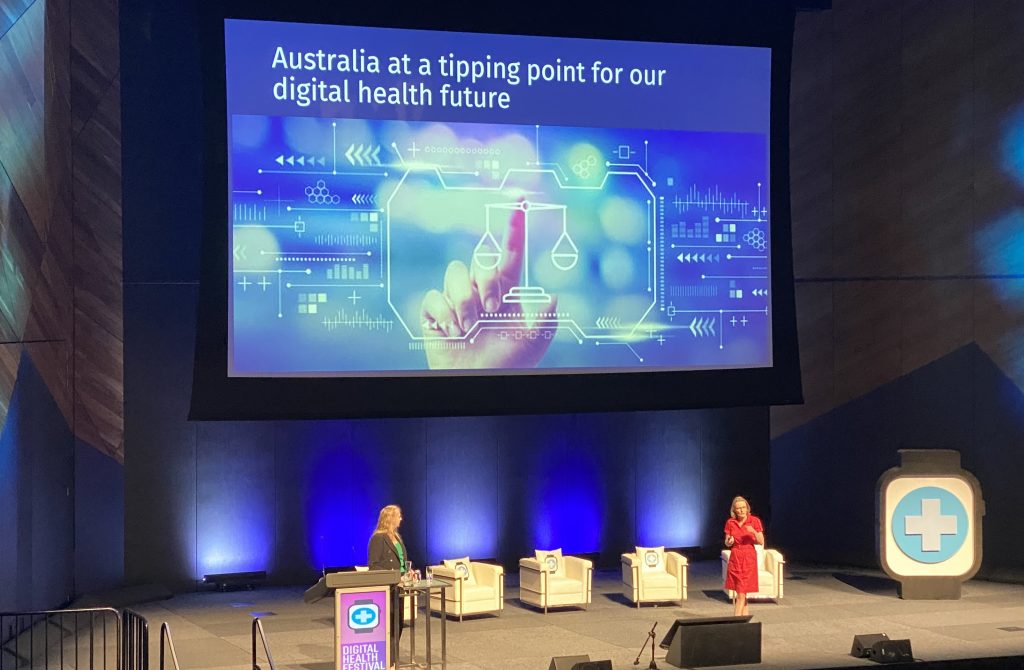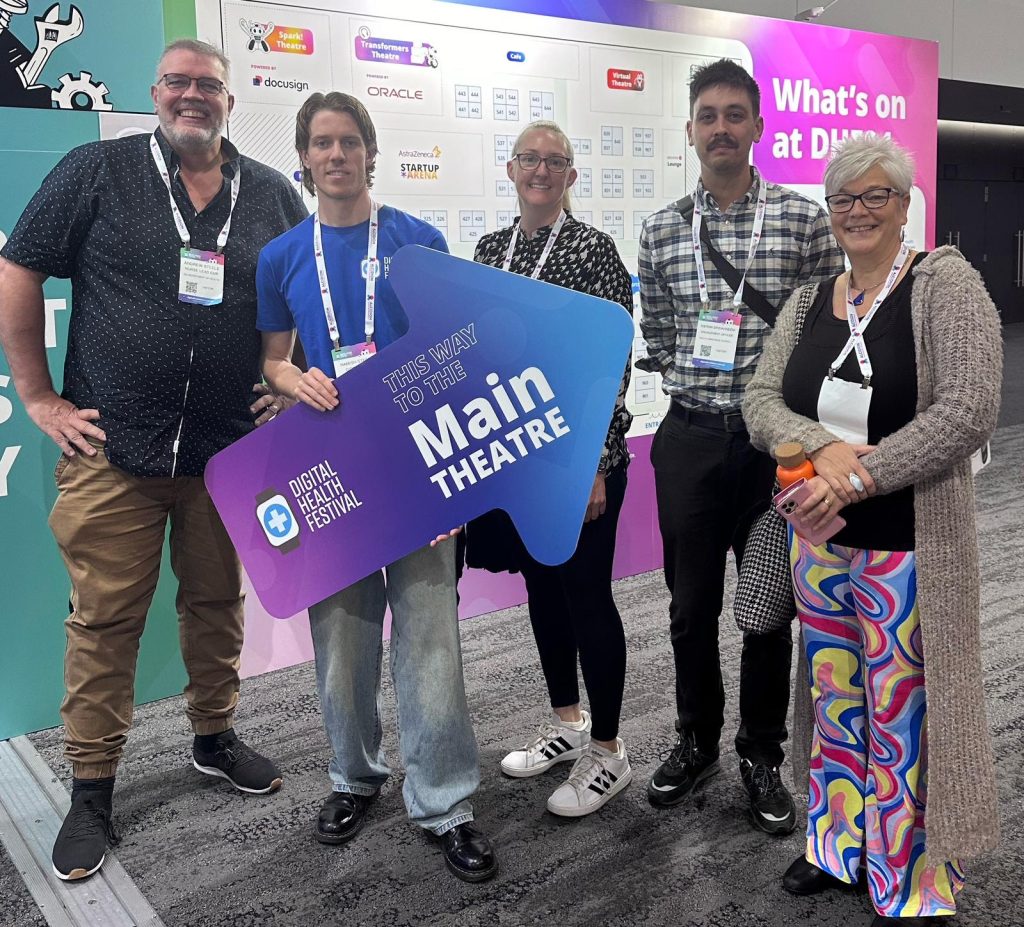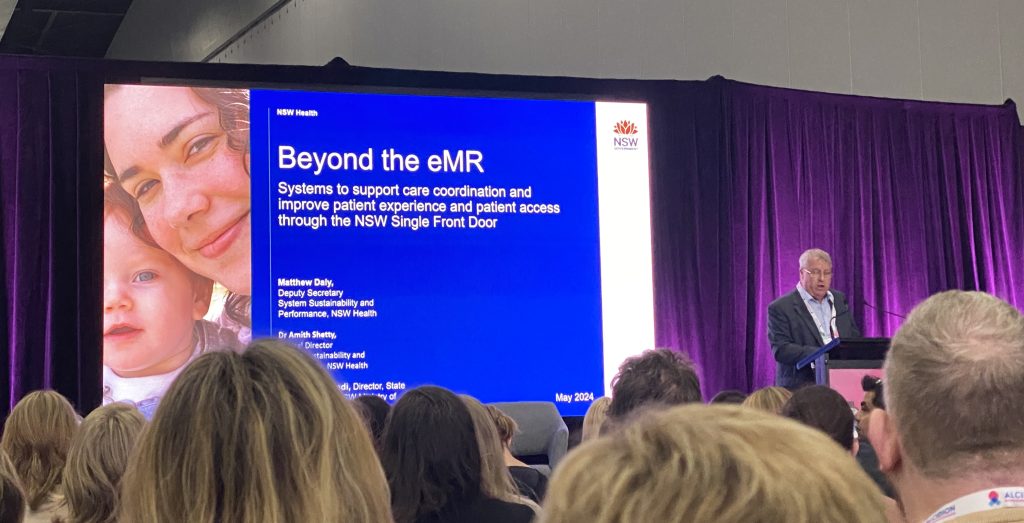
By Pip Brennan, Electronic Medical Record Consumer Reference Group Convenor
I was lucky enough to attend the Digital Health Festival 2024 in Melbourne, with WA consumer and health professional colleagues. The Health Consumers’ Council in WA negotiated to obtain three free consumer passes, and WA Health’s Electronic Medical Record (EMR) Program Team funded travel for myself and HCC Engagement Coordinator Kieran Bindahneem. We met Ricki Spencer in Melbourne, they are a member of the EMR Consumer Reference Group and split their time between WA and Victoria.
With eight concurrent streams and mostly 30-45 minute presentations, the Digital Health Festival was definitely overwhelming. Some of the concurrent presentations offered headphones, and these were by far the easiest presentations to stay focused in.
At the entrance was the stand where I took the opportunity to include a message about the importance of consumer involvement. #NothingAboutUsWithoutUs. It was not a common idea, and presentations mentioning co-design usually meant different health and government professionals collaborating. The wrap up report for the Digital Health Festival doesn’t mention the word “consumer” or “patient” anywhere – we sit somewhere in the “Other” category in the pie charts and tables. I have been approached to speak at the Digital Health Festival in 2025.
What has stayed with me
- Dr Wonchul Cha’s keynote presentation about the Samsung Medical Centre in Korea, especially how the Patient Reported Outcomes surveys, which are integrated into their electronic medical record, achieve an 80%-90% response rate. They are a seamless part of the clinical appointment, and keep patient wellbeing right on top of the agenda.
- Meeting up with consumer advocates including Mehmet Kavlakoglou, Harry Iles-Mann, and Ricky Spencer. Some quiet times talking outside the hub-bub of the Festival were restorative and insightful.
- Talking to Healthcare Information and Management Systems Society (HIMSS) staff and filling in a missing piece of the PROMS puzzle in my mind – how they need to be integrated into an EMR and used as part of care to get the return rate that really tracks patient outcomes (see Samsung example above).
- Listening to a CSIRO presentation on the work they’re doing regarding consent processes and how to have ongoing consent facilitated when our data is used for research – consumers aren’t actively involved yet, but hoping they will be soon.
- Panel discussion on how AI is supporting clinical decision making where one speaker suggested that over time, clinical trials may not be approved unless they have already gone through AI as this will reduce potential harm to patients.
- I don’t need to feel total despair that each state and territory is doing its own thing regarding electronic medical records. Interoperability is still going to be technically possible. It is the number one consumer priority! The key challenges we have in relation to digital health are actually cultural – but the interoperability work at the federal level mandating interoperability is helpful.

Some reflections
- What would it be like to have a consumer-co-led digital health festival with a focus on research translation, rather than research commercialisation? Some presentations were very sales-y.
- Most states and territories have implemented their EMRs without significant or meaningful consultation with consumers, and even in some cases clinicians. Not so in WA! And after the conference the WA Budget announcement confirmed that WA will be funded for the next three years to develop a tender and appoint a supplier for WA’s EMR.
- We have an EMR Consumer Charter in WA and a Consumer Reference Group working with the WA Health Team. We are upskilling ourselves and reflecting on what are key consumer priorities for an EMR. See our web page for all updates.






